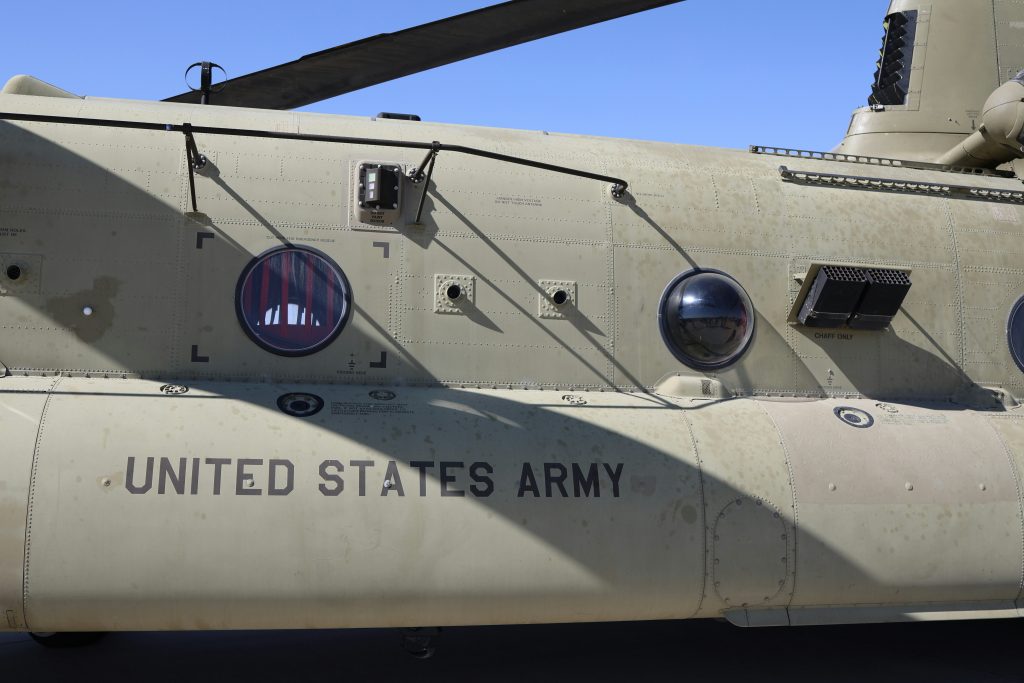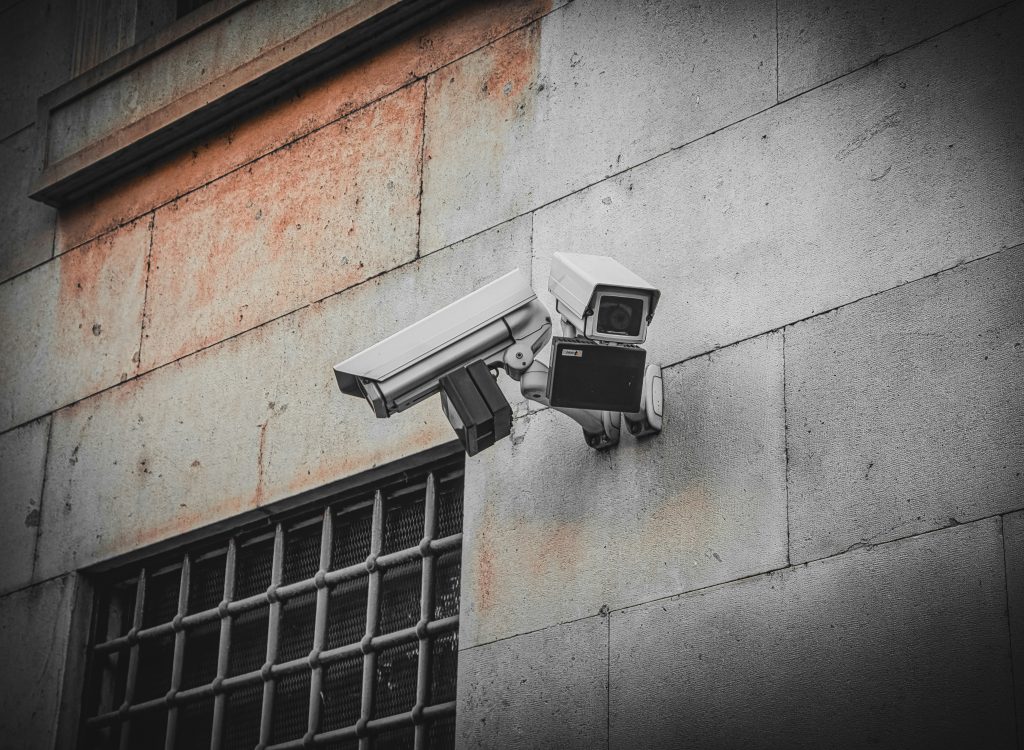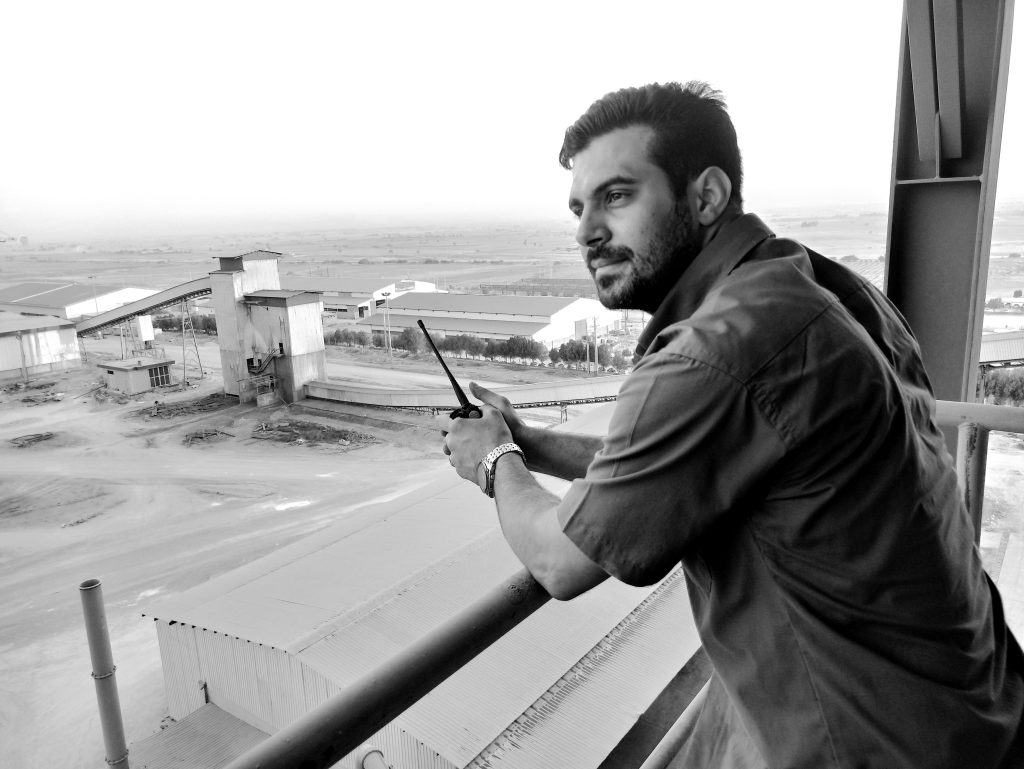Intense Military Operations Target Hamas Leader Amid Ongoing Conflict
In a significant escalation of military operations in Gaza, the Israeli military has reported the deaths of three militants in a targeted action. Among the individuals under scrutiny is Yahya Sinwar, the leader of Hamas, who has been labeled as a key architect behind the devastating attacks on October 7, 2022. Reports indicate that Israeli intelligence agents are currently assessing whether Sinwar was among those killed in the operation.
Since the attacks, which resulted in the tragic loss of over 1,200 lives and the abduction of more than 250 hostages, Sinwar has become a focal point for Israeli military efforts. Despite the ongoing violence and military pressure, sources close to Sinwar suggest that he remains defiant, showing no remorse for the actions taken by Hamas during the assault. This unyielding stance has only intensified the resolve of Israeli forces to locate and eliminate him.
The implications of Sinwar’s possible demise could be profound, marking a pivotal moment in the prolonged conflict between Israel and Hamas. Should the reports of his death be confirmed, it would represent the culmination of a year-long pursuit by Israeli forces, who have been meticulously tracking the movements of the Hamas leader, believed to be hiding within the complex network of tunnels utilized by the militant group in Gaza.
The Israeli military’s ongoing efforts reflect a broader strategy aimed at dismantling Hamas’s leadership and operational capabilities, further complicating the already fragile situation in the region. As tensions continue to mount, the international community watches closely, with concerns about the potential for further escalation and humanitarian crises.
In the wake of these developments, the situation in Gaza remains precarious, with civilians caught in the crossfire of military operations and retaliatory strikes. The humanitarian implications of such military actions are dire, as aid organizations struggle to provide assistance amid ongoing conflict and instability.
As Israel continues its campaign against Hamas, the fate of Sinwar remains uncertain, with each passing day heightening the stakes for both sides. The military’s assertion that they are evaluating the possibility of his death underscores the importance of leadership in this conflict and the lengths to which both parties will go to secure their objectives.
In conclusion, the potential death of Yahya Sinwar could signify a turning point in the ongoing struggle between Israel and Hamas, with repercussions that extend beyond the immediate conflict. As the situation evolves, it is crucial to remain vigilant and attentive to the developments on the ground, recognizing the profound impact that these events have on the lives of countless individuals caught in the turmoil.
The world holds its breath as the outcome of this operation could reshape the dynamics of power within Gaza and the broader region, emphasizing the critical need for a sustainable resolution to the conflict that has plagued this area for decades.
Tags: Gaza, Hamas, Israel, Military Operations, Sinwar, Yahya Sinwar
Iran Stands Firm on Retaliation Plans Against Israel Amid Rising Tensions
In a significant escalation of rhetoric, Iran has firmly rejected calls from three European nations urging restraint in the face of heightened tensions following the assassination of Hamas leader Ismail Haniyeh. The Iranian government, led by Supreme Leader Ayatollah Ali Khamenei, has publicly vowed to retaliate against Israel, blaming the country for Haniyeh’s death in Tehran. This declaration has sparked fears of an imminent attack on Israeli territory.
The backdrop of this situation is fraught with complexity. The assassination of Haniyeh, a prominent figure within Hamas, has been perceived in Tehran as a direct affront, prompting a swift and aggressive response from Iranian leadership. Despite the calls from Western powers, including the United Kingdom, for Iran to exercise caution and avoid further escalation, the Iranian officials remain resolute in their stance. They have indicated that any retaliatory measures are imminent, with assessments suggesting that a strike could occur as early as this week.
The geopolitical implications of this potential conflict are profound. The United States has expressed concern over Iran’s intentions, cautioning that the situation could spiral out of control, further destabilizing an already volatile region. The assassinations, counterattacks, and subsequent threats highlight the precarious balance of power in the Middle East, where alliances and enmities shift rapidly.
Amidst these tensions, there are glimmers of hope for diplomatic negotiations. Reports suggest that discussions are underway regarding a potential hostage release and a ceasefire deal in Gaza, which could temporarily delay Iranian military actions. However, the effectiveness of these negotiations remains uncertain, as the Iranian leadership appears unwavering in its demand for retribution.
As the world watches this unfolding drama, the stakes are incredibly high. The possibility of direct military conflict between Iran and Israel could have catastrophic consequences, not only for the two nations involved but also for regional stability and global security. Analysts warn that any miscalculation could ignite a broader conflict that involves multiple countries in the region, exacerbating an already dire humanitarian situation in Gaza.
The Iranian response is emblematic of a broader cycle of violence that has characterized relations between Israel and its neighbors for decades. The dynamics of this conflict are further complicated by the presence of various militant groups, shifting alliances, and the interests of global powers in the region. As tensions escalate, it is crucial for international actors to engage in meaningful dialogue to prevent a resurgence of hostilities that could lead to devastating repercussions.
As this situation continues to evolve, the international community is urged to take proactive measures to de-escalate tensions. The stakes are higher than ever, and the potential for conflict looms large. With both sides preparing for potential military action, the question remains: will diplomacy prevail, or are we on the brink of a new chapter in the ongoing saga of Middle Eastern conflict? Only time will tell as the world holds its breath, waiting for the next move in this intricate geopolitical chess game.
Tags: Geopolitics, Hamas, Iran, Iran attack Israel Israeli, Iran attacks Israel, Israel, Retaliation
Iran Promises Retaliation Against Israel Following Assassination of Hamas Leader
In a dramatic escalation of tensions in the Middle East, Iran has firmly declared its intention to retaliate against Israel for the assassination of Hamas’ political leader, Ismail Haniyeh, which occurred in Tehran last week. Iranian officials have made it clear that this event will not go unanswered, with President Masoud Pezeshkian stating unequivocally that Tehran will ‘definitely’ respond to what they perceive as an aggressive act by Israel.
This incident has sent shockwaves through the region, as both Hamas and Iranian authorities hold Israel accountable for the killing. The situation is particularly precarious, with analysts warning that the threat of an Iran-Israel war looms larger than before. The dynamics have shifted since Iran’s first direct attack on Israel earlier this year, suggesting a potentially more volatile environment in which both nations are now operating.
The assassination has heightened fears of a broader conflict, and Israeli Prime Minister Benjamin Netanyahu has convened his security cabinet to discuss possible counterstrikes. The atmosphere in Israel is tense, with citizens acutely aware of the risks that this retaliation might entail. Many are left watching and waiting, bracing for a response that could further destabilize an already fraught region.
Recent statements from Iranian officials have underscored the seriousness of their intentions. They have issued warnings that the response will come at a time and place of their choosing, with military analysts suggesting that Iran has a range of options at its disposal. The last two weeks have seen an unprecedented escalation of events, raising alarms among security experts about the potential for a major regional conflict that could draw in various factions and escalate beyond the control of either nation.
As tensions mount, the international community watches closely, aware that any miscalculation could lead to a broader conflagration. Iran’s vow to retaliate signals a pivotal moment in Middle Eastern geopolitics, one that could redefine alliances and hostilities in the region. The stakes are undeniably high, and the potential repercussions of this conflict could resonate far beyond the immediate actors involved. The coming days and weeks will be critical in determining whether diplomatic efforts will prevail or if the cycle of violence will continue unabated.
In summary, the assassination of Ismail Haniyeh has sparked a significant response from Iran, which has vowed to retaliate against Israel, raising the specter of a wider conflict in the region. As both sides prepare for possible escalations, the world holds its breath, hoping for a resolution to this dangerous standoff.
Tags: Hamas, Iran, Iran retaliation Israel, Israel, Middle East Conflict, Retaliation
Iran Vows Retaliation: Rising Tensions with Israel as Assassination Sparks Threats of War
In a dramatic escalation of tensions in the Middle East, Iran has publicly vowed to retaliate against Israel following the assassination of Hamas leader Ismail Haniyeh in Tehran last week. This incident has sent shockwaves through the region, as both nations brace for potential conflict. Reports indicate that Iran is preparing for a significant response, which could involve coordinated attacks alongside Hezbollah, its ally in Lebanon. Israeli citizens are on high alert, anticipating possible strikes from Iranian forces. The situation is further complicated by the fact that Iran’s military capabilities have evolved since its last direct assault on Israel in April, when it launched nearly 350 drones and missiles in a failed attempt to breach Israeli defenses. Experts suggest that the current climate is markedly different, with Iran seemingly more emboldened and willing to leverage its military assets. As international observers watch closely, the dynamics between moderate Sunni states and their interest in countering Iran’s influence are also in play. While these nations may seek to weaken Iran, the possibility of forming a lasting coalition with Israel remains uncertain. The specter of war looms large over the region as diplomatic efforts struggle to keep pace with the rapidly escalating threats. The implications of such a conflict could extend beyond the immediate parties involved, potentially drawing in global powers and destabilizing the entire Middle East. As both sides prepare for what could be a pivotal moment in their ongoing hostilities, the world waits with bated breath for the next move in this high-stakes game of geopolitics.
Tags: Hamas, Hezbollah, Iran, Iran attack Israel Israeli, Israel, Middle East
Escalating Tensions Between Iran and Israel: A New Era of Conflict?
In a dramatic turn of events, the ongoing tensions between Iran and Israel have escalated, raising concerns of potential conflict in the region. Recent developments include the assassination of prominent Hamas leader Ismail Haniyeh in Tehran and Hezbollah figure Fuad Shukr in Beirut, leading to heightened fears of retaliation from Iran and its allied militias. The situation has caught the attention of international leaders, including U.S. President Biden, who is closely monitoring the developments and preparing for any necessary support for Israel should it come under attack.
Moreover, the U.S. Department of Justice has intervened, charging a Pakistani national with alleged ties to Iran for a foiled plot to assassinate a U.S. politician. This incident highlights the growing global concern over Iran’s influence and its willingness to engage in political violence abroad. The Pakistani suspect remains in federal custody while investigations continue, emphasizing the seriousness of the threat that Iran poses beyond its borders.
As tensions simmer, Russian President Vladimir Putin has reached out to Iran’s Supreme Leader Ayatollah Ali Khamenei, urging restraint in response to Israel’s suspected actions. This diplomatic intervention underscores the complexities of the Middle Eastern geopolitical landscape, where alliances and rivalries can shift rapidly.
Analysts suggest that the nature of the conflict between Iran and Israel has transformed significantly since the first direct attacks earlier this year. The current geopolitical climate suggests that both parties are on edge, with Iran’s regional militias poised for any potential retaliation. The assassination of high-profile figures within the Iranian-supported factions has prompted discussions on whether a full-scale war is imminent or if a more calculated response is forthcoming.
While speculation abounds, the reality is that the situation remains fluid and unpredictable. The potential for conflict not only threatens the stability of the region but could also have far-reaching implications for international relations and security. As nations watch closely, the call for diplomacy becomes ever more urgent, as the consequences of escalation could lead to a devastating confrontation that neither side desires.
In this tense environment, many are left wondering how far Iran is willing to go in defending its interests and responding to perceived threats. The stakes are high, and the world is watching with bated breath as the situation continues to evolve. The interplay of military strategy, political maneuvering, and international diplomacy will determine the future of Iran-Israel relations and the broader stability of the Middle East.
As the global community grapples with the ramifications of these developments, one thing is clear: the time for dialogue is now, before the situation spirals into an uncontrollable conflict that could have dire consequences for all involved.
Tags: Hamas, Hezbollah, Iran, Iran-Israel Tensions, Israel, U.S. Politics
Iran Vows Retaliation Against Israel Following High-Profile Assassination
In a stark escalation of tensions in the Middle East, Iranian President Masoud Pezeshkian confirmed on Monday that Tehran would “definitely” retaliate against Israel for the assassination of Hamas leader Ismail Haniyeh. This declaration comes on the heels of a series of high-profile assassinations that have sent shockwaves throughout the region, compelling numerous factions to reassess their strategies and alliances.
The assassination of Haniyeh, carried out under suspicious circumstances widely attributed to Israeli operatives, has intensified fears of a broader conflict. Israeli leaders have openly acknowledged the possibility of an Iranian-led retaliation, heightening security measures and preparing military defenses amidst fears of an impending strike.
The situation is compounded by the scheduled meeting at the Organization of Islamic Cooperation (OIC) headquarters in Jeddah, Saudi Arabia, where discussions on a unified response to Israeli actions are expected to take center stage. As regional militias and allied factions express solidarity with Iran, the potential ramifications of a coordinated response could reshape the geopolitical landscape.
Analysts agree that Iran’s options for retaliation are limited, yet the Islamic Republic has vowed to exercise its “legitimate” right to defend itself. The Iranian leadership is under immense pressure to respond decisively to bolster its credibility both domestically and internationally. With regional tensions at a boiling point, the stakes have never been higher.
In the past week alone, the Middle East has been rocked by two significant assassinations. The first was of Fuad Shukr, a senior commander of Hezbollah, which has drawn the ire of Iranian officials and underscored the ongoing threats faced by allied groups in the region. These events have led to a call for unity among militant factions, as they navigate the complex web of alliances and enmities that characterize Middle Eastern politics.
As the clock ticks and the potential for retaliation looms, the international community watches closely, aware that any miscalculation could lead to widespread conflict. The specter of war hangs heavy in the air as Iran and Israel remain locked in a deadly game of brinkmanship, with both sides preparing for the worst.
In conclusion, the assassination of Haniyeh has not only reignited the longstanding animosity between Iran and Israel but has also mobilized various factions within the region to consider their positions in an increasingly volatile environment. With the OIC summit approaching and the threat of retaliation looming, the next steps taken by Iran and its allies will be critical in determining the future stability of the Middle East.
Tags: Hamas, Iran, Iran retaliation Israel, Israel, Middle East, Retaliation
Tensions Escalate as Iran Vows Retaliation Against Israel
In a rapidly unfolding situation that has captured global attention, Israel is preparing for potential military conflict as Iran and its ally Hezbollah threaten retaliation following the assassination of a prominent Hamas leader. The recent surge in hostilities has heightened fears of a broader regional conflict, with both sides gearing up for possible confrontation. Over the past few days, Iranian officials have made it clear that they hold Israel responsible for the death of the Hamas leader, signaling a commitment to avenge his assassination. This rhetoric has alarmed Israeli officials, prompting Prime Minister Benjamin Netanyahu to convene his security cabinet for urgent discussions on the nation’s defense strategy. As the prospect of an Iranian assault looms, Israel is bracing itself for what could be a prolonged military engagement. Reports indicate that intelligence assessments suggest a multi-day attack may be imminent, with Israel’s defense forces on high alert to respond to any threats from the north. The United States has also been closely monitoring the situation. Secretary of State Antony Blinken emphasized the importance of diplomatic measures to mitigate the escalation, urging G7 allies to exert pressure on Iran to avoid further violence. In a show of military readiness, the U.S. has redirected its naval assets to the region, reinforcing its commitment to regional stability amidst growing tensions. The potential for a military confrontation raises significant concerns about the humanitarian impact on civilians, particularly in Gaza, where the ongoing conflict has already taken a heavy toll. Observers warn that an all-out war involving Iran could shift the dynamics of the conflict dramatically, drawing in multiple actors and destabilizing the region further. As the situation unfolds, the eyes of the world remain fixed on the Middle East, with governments urging restraint and dialogue to prevent a catastrophic escalation of violence.
Tags: Conflict, Hamas, Hezbollah, Iran, Iran attack Israel, Israel, Retaliation
Escalating Tensions: Iran’s Response to Israel’s Actions Sparks Regional Concerns
In a region fraught with tension, the Iranian foreign ministry has issued a stark warning regarding its intentions towards Israel. The spokesperson emphasized that while Iran does not seek to escalate conflicts, it feels compelled to take necessary actions against Israel to maintain stability in the region. This declaration comes in the wake of increased military readiness from Israel amid fears of retaliatory attacks from Iran and its associated militant groups.
As Israel prepares for potential assaults, President Joe Biden is convening his national security team to address the burgeoning crisis. With Israeli Prime Minister Benjamin Netanyahu consulting with his security cabinet on strategies for counterstrikes, the atmosphere is charged with anticipation of conflict. The recent assassination of prominent Hamas leader Ismail Haniyeh in Tehran, which Iran attributes to Israeli forces, has further escalated hostilities, with Iranian officials vowing to respond decisively.
This week is pivotal for the region, as events unfold that could dictate the trajectory of the ongoing war in Gaza. Analysts suggest that Iran’s retaliation could significantly shift focus away from Gaza, drawing in various regional actors into a broader conflict. The United States has called for restraint among its G7 allies and is exerting diplomatic pressure to avert a wider war, aiming to limit attacks and responses from involved parties.
In a related development, a high-ranking Russian delegation is visiting Tehran, led by the Secretary of Russia’s National Security Council, Sergei Shoigu. This visit underscores the international implications of the current crisis, with Russia seeking to play a role in mediating tensions.
Meanwhile, a crisis meeting of Arab states is scheduled, where leaders are expected to discuss Iran’s actions and the overall regional response. Countries are urging Iran to exercise restraint, highlighting the precarious balance of power and the potential ramifications of unchecked aggression.
As the situation evolves, the international community watches closely, aware that the decisions made in the coming days could either lead to a de-escalation of tensions or plunge the region into deeper conflict. The stakes are high, and the implications of these events reach far beyond the immediate actors involved, affecting global stability and security.
Tags: Hamas, Iran, Iran Israel, Israel, Middle East, Tensions
Rising Tensions in Lebanon as Iran and Hezbollah Respond to Assassinations
In a rapidly evolving situation, Lebanon finds itself at the center of escalating regional tensions following the assassination of Hamas leader Ismail Haniyeh in Tehran. Iran has vowed to retaliate against Israel, whom it blames for the death, leading to fears of a wider conflict in the Middle East. The Iranian government has promised ‘severe’ consequences, and this pledge has been met with alarm from various international observers.
In the wake of Haniyeh’s assassination, Hezbollah, the Iran-backed militant group based in Lebanon, launched a barrage of rockets into northern Israel. This marked a significant escalation in hostilities, raising concerns about the potential for an all-out war. The recent military actions signal a dangerous turn in a region already fraught with conflict and instability.
The security situation in Lebanon has deteriorated to the point where foreign governments are urging their citizens to leave the country. The U.S. Embassy in Lebanon has advised American nationals to depart ‘as soon as possible,’ emphasizing the volatile environment and the potential for a broader regional conflict. French nationals are facing similar pressure, highlighting the urgency of the situation as tensions mount.
As the international community watches closely, the implications of these events extend far beyond the borders of Lebanon. The involvement of Iran and Hezbollah indicates that the conflict could escalate into a larger confrontation involving multiple nations. Analysts warn that should Iran act on its threats, the consequences could reverberate throughout the Middle East, drawing in various stakeholders and further complicating an already fragile geopolitical landscape.
The portraits of slain leaders, including Haniyeh and Iranian Quds Force chief Qasem Soleimani, serve as grim reminders of the ongoing strife. Public sentiment in Lebanon is increasingly polarized, with many citizens caught in a precarious position amid the rising tensions. The country, already grappling with economic woes and political instability, now faces the daunting prospect of a new conflict that could exacerbate its challenges.
As Lebanon navigates this treacherous landscape, the calls for restraint and dialogue become ever more critical. The urgency to find a diplomatic resolution is paramount, as the alternative could lead to devastating consequences not only for Lebanon but for the broader region. The world watches as Lebanon stands at a crossroads, its fate intertwined with the actions of powerful players in the ongoing conflict.
Tags: Hamas, Hezbollah, Iran, Israel, Lebanon
Iran’s Revolutionary Guard Claims Responsibility for Assassination of Hamas Leader
In a shocking revelation, Iran’s Revolutionary Guard has publicly acknowledged its involvement in the assassination of Ismail Haniyeh, the political chief of Hamas. The incident, which took place in Tehran, has sent ripples of concern through the Middle East, further complicating an already tense geopolitical landscape. According to the Revolutionary Guard, a short-range projectile was responsible for the attack, marking a significant escalation in Iran’s military activities and its direct engagement in regional conflicts.
The assassination has not only humiliated Iran’s leaders but has also dashed hopes for a ceasefire in the ongoing conflict between Israel and Palestinian militant groups. This event raises questions about the stability of the region and the potential for retaliatory actions from Hamas and its allies. As the dust settles, the implications of this high-profile killing are being closely monitored by international observers and regional powers alike.
In light of this assassination, Gen. Michael Kurilla, a key figure in U.S. military operations in the Middle East, is expected to mobilize a coalition similar to the one that previously defended Israel against Iranian aggression. This coalition aims to counterbalance Iran’s influence in the region and prevent further escalations that could lead to broader conflicts.
The Iranian media has been rife with commentary on the assassination, often framing it as a significant blow to the nation’s prestige and highlighting the internal and external challenges it faces. The narrative suggests that the Iranian leadership may be feeling the pressure from both domestic unrest and the complexities of international relations, especially as they navigate their alliances with militant groups like Hamas.
As tensions continue to rise, the aftermath of Haniyeh’s assassination will likely prompt a re-evaluation of strategies among various factions in the Middle East. The heavily armed nations in the region are preparing for potential ramifications, with many observers predicting an uptick in hostilities. The geopolitical chess game is becoming increasingly complicated, as Iran’s actions may provoke a stronger response from other nations, particularly Israel, which has historically viewed Hamas as a significant threat.
In conclusion, the assassination of Ismail Haniyeh not only signifies a pivotal moment for Iran but also reshapes the strategic landscape of the Middle East. As nations brace for potential fallout, the international community watches closely, knowing that the repercussions of this event could have lasting effects on peace and stability in the region.
Tags: Geopolitics, Hamas, Iran, Middle East






